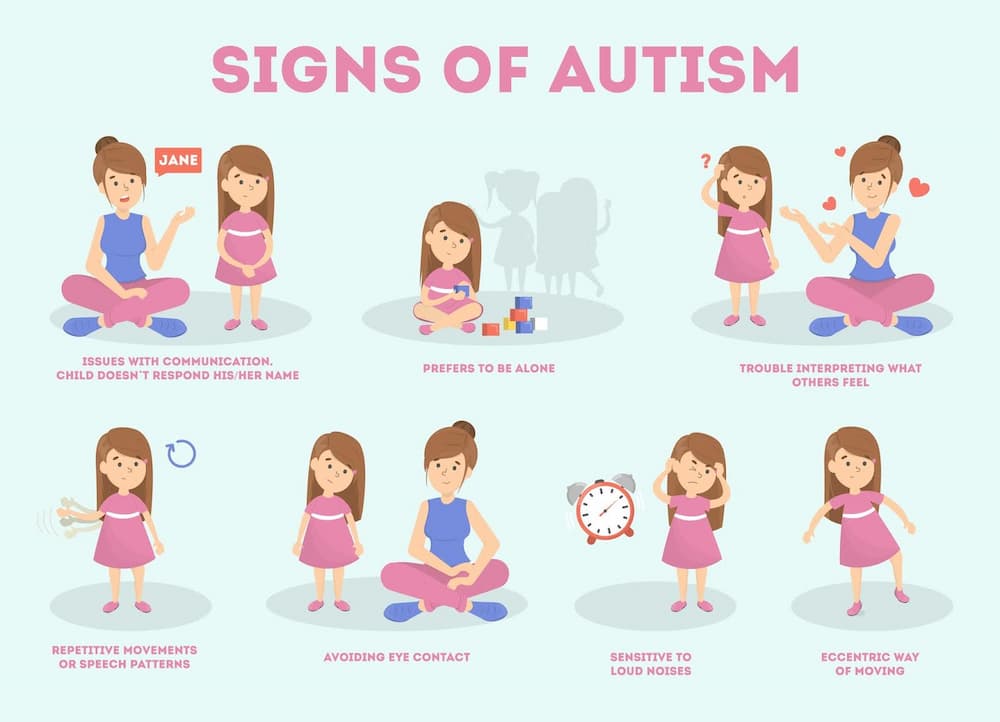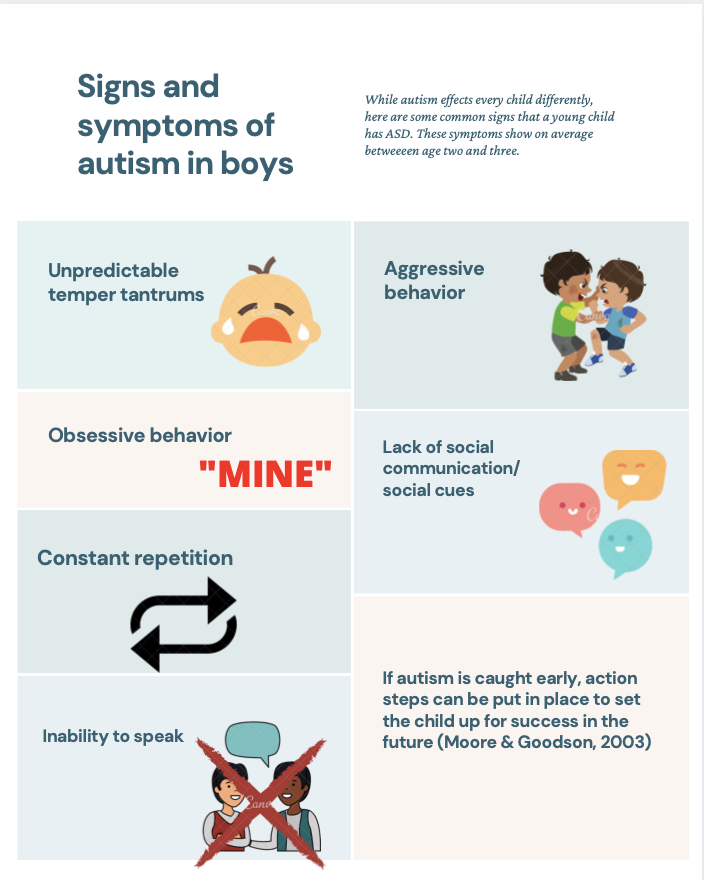Why social interactions can flourish with guidance from Autism Spectrum Therapies specialists
Why social interactions can flourish with guidance from Autism Spectrum Therapies specialists
Blog Article
Secret Symptoms And Signs to Recognize in Individuals With Behavioral Autism
When you run into someone with behavioral autism, acknowledging essential indications and signs is crucial. In addition, sensory sensitivities can lead to overwhelming experiences.
Difficulties in Social Interactions
When you interact with somebody on the autism range, you may see they have a hard time with social cues and interaction. These challenges can make social interactions really feel frustrating for them.
In addition, you might find that they prefer routines and familiar settings, which can limit their determination to participate in brand-new social situations. When they do involve, they might discuss their passions in excellent detail without discovering if you're interested. This can lead to one-sided discussions that leave you really feeling disconnected. Recognizing these difficulties can assist you come close to interactions with compassion and perseverance, cultivating an extra comfy atmosphere for both of you.
Trouble With Verbal and Non-Verbal Communication

Non-verbal communication can be much more difficult. You may see a lack of eye get in touch with or minimal use of gestures, which can make communications feel uncomfortable. Faces might not always line up with the conversation, leading to confusion concerning their sensations. Recognizing these indications is vital, as it helps you better assistance and involve with individuals on the autism spectrum. By recognizing their interaction challenges, you can foster extra purposeful links and supply an extra helpful setting.
Repetitive Actions and Regimens
Communication obstacles typically come with various other indicators of autism, such as recurring habits and a solid choice for regimens. You may observe that individuals with autism often participate in certain, repetitive activities, like hand-flapping, rocking, or repeating expressions. These habits can provide convenience and a feeling of control in a frequently overwhelming globe.
When they adhere to an organized timetable,Regimens are similarly important; many people thrive. You may discover that changes to these regimens can result in substantial distress. If they have a daily routine of consuming morning meal at a particular time or following a certain course to school, any type of disruption can create anxiety.
Acknowledging these patterns assists you comprehend their actions and provide assistance. By accommodating their need for regular and enabling repeated activities, you can produce a more comfy setting that eases their obstacles.
Sensory Level Of Sensitivities

Usual Sensory Triggers
Sensory sensitivities can significantly influence day-to-day life for individuals with autism, as certain stimuli usually set off frustrating reactions. Common sensory triggers consist of loud sounds, bright lights, and strong scents. You might notice that unexpected audios, like sirens or alarm systems, cause anxiety or distress. Fluorescent lights in shops can feel unpleasant and rough. Appearances can also play a considerable role; rough materials or particular food structures might be unbearable for you. Additionally, crowded places can bewilder your senses, making it difficult to focus or loosen up. Recognizing these triggers can aid you manage your environment much better. By being aware of what affects you, you can take actions to decrease pain and improve your day-to-day experiences.
Behavior Actions Described
Recognizing your behavior actions to sensory sensitivities is crucial, as they commonly reveal exactly how you communicate with the globe. You may additionally discover on your own looking for certain sensory experiences, like deep stress or quiet settings, to help ground yourself. Recognizing these patterns assists you understand your requirements far better and can guide how you connect them to others.
Coping Strategies Review
Acknowledging your sensory sensitivities is just the initial step; now it's time to explore coping approaches that can help you handle those experiences properly. Start by producing a sensory toolkit tailored to your requirements. This can consist of noise-canceling headphones, fidget toys, or calming aromas. Developing a structured routine can likewise provide predictability, minimizing anxiousness around sensory overload. Take breaks in a peaceful area to collect yourself when you really feel overwhelmed. Exercising mindfulness strategies such as deep breathing can aid ground you in the moment. Additionally, communicate your requirements with those around you; having helpful family and friends can make a significant distinction. Remember, locating what functions ideal for you might take some right here time, so be open and patient to trying new techniques.
Limited Passions and Emphasis
While numerous individuals create a large range of passions, those with autism commonly demonstrate restricted rate of interests and an extreme focus on specific subjects. You may notice that somebody with autism can invest hours diving right into their favorite topic, whether it's a specific type of train, a specific flick, or a scientific concept. This extreme emphasis isn't just a leisure activity; it can end up being a central component of their identity and social interactions.
You may locate that conversations revolve around these passions, and they may have a hard time to involve in broader subjects. By understanding and acknowledging these limited interests, you can promote a helpful atmosphere where they feel valued and understood, enabling for more meaningful links and interactions.
Emotional Guideline Difficulties
Individuals with autism frequently deal with obstacles in psychological guideline, which can be affected by their intense focus on particular rate of interests. You may discover that when an individual is deeply taken part in a recommended task, they can experience solid emotions, whether enjoyment or disappointment. This intensity often makes it difficult for them to shift gears or manage their sensations when points do not go as intended.

Irregularity in Developing Milestones
When it comes to developing milestones, you'll discover that individuals with autism usually show a vast array of irregularity. You might see a child excel in language skills but struggle with social interactions.
It's vital to identify that each person's journey is distinct. Some may develop complex skills early, just to encounter difficulties in the future. Others may take longer to accomplish fundamental turning points but after that thrive in specific locations. Observing these patterns can aid you recognize their staminas and requires much better.
Frequently Asked Questions
Exactly How Is Autism Identified in Children and Grownups?
To identify autism in children and grownups, experts evaluate actions, interaction skills, and social communications. They often make use of standard tests, interviews, and monitorings to determine if an individual meets the standards for autism spectrum problem.
Exist Different Kinds of Autism Spectrum Disorders?
Yes, there are various kinds of autism spectrum problems, including Asperger's disorder and prevalent developing disorder-not otherwise specified. Each kind varies in extent and qualities, so understanding these differences can assist you far better support people with autism.
What Treatments Are Effective for People With Autism?
When considering reliable therapies for individuals with autism, you'll locate choices like Applied Actions Analysis, speech treatment, and occupational therapy. Each strategy can help boost communication, social skills, and everyday operating tailored to private demands.
Can Individuals With Autism Lead Independent Lives?
Yes, individuals with autism can lead independent lives. With the right assistance, my review here skills training, and sources, you can help them establish self-sufficiency, take care of day-to-day tasks, and flourish in different settings, fostering their independence.
Exactly How Can Family Members Assistance Liked Ones With Autism?
You can support your enjoyed ones with autism by creating a structured atmosphere, motivating their passions, practicing persistence, promoting interaction, and advertising social abilities. Commemorate their achievements, regardless of exactly how tiny, and construct an encouraging community.
Although many individuals on the autism spectrum can utilize and comprehend language, they usually deal with considerable obstacles with both non-verbal and spoken interaction. Acknowledging these indicators is vital, as it assists you much better assistance and engage with individuals on the autism range. You may notice that people with autism typically engage in details, repeated activities, like hand-flapping, rocking, or repeating phrases.Sensory sensitivities can significantly affect day-to-day life for individuals with autism, as certain stimuli often trigger frustrating responses.When it comes to developing turning points, you'll discover that find more information people with autism usually reveal a vast array of variability.
Report this page